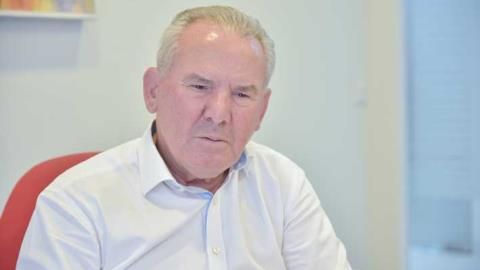The president of the Malta Hotels and Restaurant Association (MHRA) Tony Zahra refrained from directly commenting on whether something must change to prevent restaurants and hotels from damaging the environment, as eNGOs claim and, instead, he pointed his finger at the “government to take these decisions”.
“Doing nothing is also a political decision… and it has its own repercussions,” Zahra said.
In an interview with The Malta Independent on Sunday, Zahra was pressed on the negative effects that the so-called “cowboy developers” and hoteliers are having on the environment and Malta’s touristic products. In light of the recent environmental protest Xebbajtuna! he was asked whether, now, something has got to give.
Last year, a study commissioned by the MHRA and carried out by Deloitte, revealed that Malta would need to bring in 4.7 million tourists to cover 80% of the already present and planned bed stock.
In response, Zahra said that the carrying capacity report, which was a very expensive report, should have been done by the government, not the MHRA.
Zahra was very clear on this point: By commissioning this study “MHRA has done its job,” now it is up to the government to take the necessary political decisions. “It has to take political decisions on facts and figures,” Zahra added.
“MHRA's decision is very clear. ‘We have done the study. Mr government, you're the government. We're not going to tell you anything, you have to make the decisions, not us’.”
Zahra added that this report revealed a number of “pressure points” that Malta would struggle with to maintain this amount of tourists.
“For example, Bugibba and St Paul’s Bay drainage is already beyond capacity, so if you put more people in there, you are going to have a situation where drainage is going to be a major problem.”
New drainage systems can be implemented Zahra said and new roads are required to keep up with the demand. The question is, what needs to be done now until the necessary infrastructure is in place?
Keeping with the theme of the environment, Zahra was also asked to give the MHRA’s position on restaurants taking up pedestrian walkways with tables and chairs and blasting music, which has become a very common theme on Gzira’s strand and in the streets of Valletta.

In the case of Valletta, he said that the MHRA has been very vocal about protecting Valletta and how it should be treated as a “particular product”.
“We should not bring Paceville into Valletta. Playing music is bringing Paceville into Valletta.”
“You can walk from Valletta to Paceville... It's a very nice walk and you don't even need to cross the road.”
Pressed on restaurants taking up pedestrian walk-way space with chairs and tables, he reiterated that this is a political decision and the MHRA, as a lobby group, will not comment on whether permission for tables and chairs to be taken outside should be granted or not.
‘The EU is wrong’ in insisting on the removal of energy subsidies
Following the government’s announcement that it shall be spending over €600m on energy subsidies, Zahra had said that this was the “most important budgetary measure” to sustain the tourism industry that the government implemented.
However, last month the European Commission suggested that Malta must start phasing out the subsidies by the end of the year, although the government has so far shown no such inclination.
Asked whether businesses within the hospitality and restaurant sector will be able to stay afloat if the subsidies had to ease off, Zahra responded by taking issue with the EU’s economic model.
As a lobby group, Zahra said that the MHRA had some say in the matter, and it told the government that with this subsidy the government knew that it had to spend €600m.
“If you take away that subsidy, you do not know how much the cost is going to be. As there will be tremendous pressure coming from [multiple sectors and consumers].”
He further said that if the government had not subsidised the energy sector, then the Cost of Living Adjustment (COLA) would have been close to €25. “So the economic impact of not taking that decision would have been much more than €600m.”
“The European Union is wrong in insisting on the removal of this subsidy and we will oppose it because the government's finances can in fact sustain this and there is no reason why decisions that are wrongly taken in Brussels have to be implemented in Malta.”
Air Malta closing down will mainly affect ‘winter traffic’
Currently, there are ongoing discussions taking place between the government and the European Commission which is yet to take a final decision on whether the Commission will permit the government to pump almost €300m into Air Malta to save the airline.
Asked whether Zahra is worried about the possibility of Malta losing its national airline, Zahra said that if this were to happen “it will mostly affect our winter traffic”.
Winter traffic is basically MICE (Meetings Incentives Conferences and Events) traffic, he explained. This type of traffic brings in people from various parts of Europe but also other parts of the world to attend a conference being held in Malta.
“The winter traffic is dependent to a very large extent on these activities.”
The MICE traffic, he said, mostly travels on legacy airlines and not low-cost airlines. “They would not be flying low cost, they would be flying legacy where you can buy a ticket from New York to Malta via Frankfurt with a direct ticket.”
“If we lose the legacy airline, this will have a major impact on our MICE traffic. The summer traffic will be less impacted because it is mostly driven by leisure tourists who are less likely to travel club.”
Source: independent.com.mt